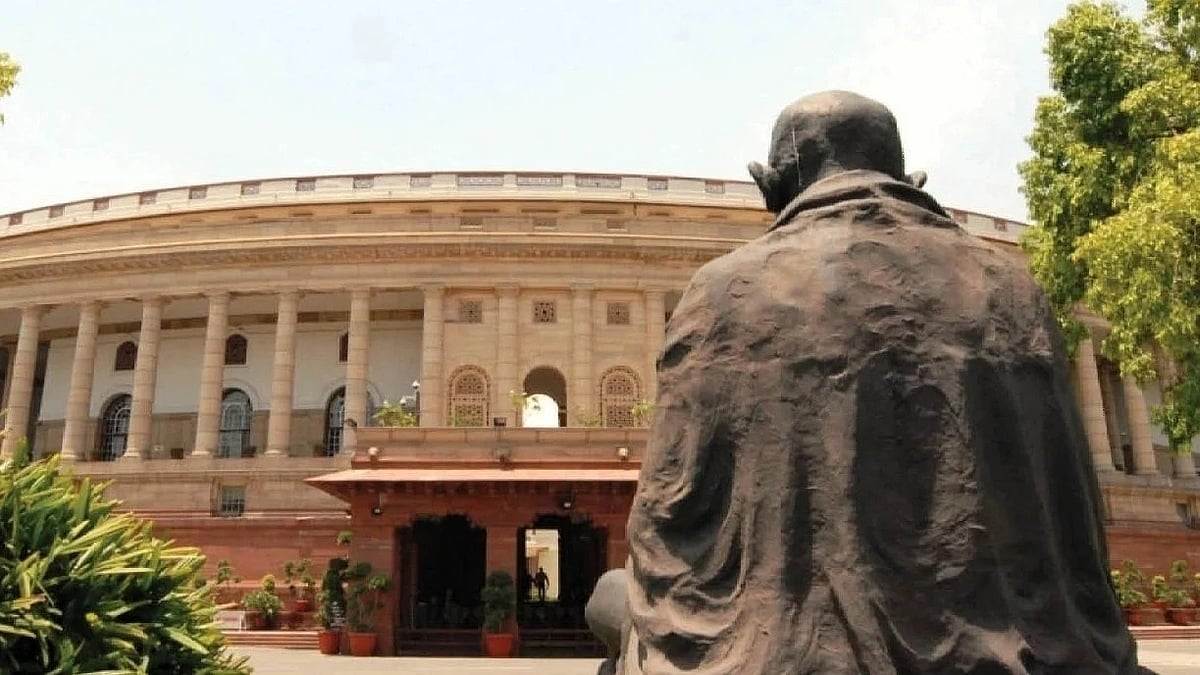Opinion
The founding of a new swaraj, and Gandhi's talisman
In the village of Samakka in Telangana's Adilabad district, a vision of non-violent self-rule has emerged in the form of public hearings

Any system is based on some working principles. And each principle has a foundation. Mahatma Gandhi's talisman provided such a foundation to a newly formed nation-state, a symbol born of thousands of years of cultural meditations.
It is said that when some members of the Constitution Committee went to meet Gandhi with Babu Jagjivan Ram, he gave them this talisman, restating his firm faith in it. What was the charm? If any decision had to be taken, he said, and if there was any dilemma about it, then one should close one's eyes and visualise the faces of the poorest of the poor. If the step in question brought a ray of hope to those faces, then it was a way to spiritual liberation and socio-economic self-rule, and it should be understood that it was the right step.
This talismanic idea is at the root of our Constitutional universalism. However, we are rapidly moving towards the creation of a system in which no one cares. It is common in this country to see citizens remove their footwear and fold their hands before entering a collector's office, as though entering a temple.
How should we begin to change this? In such a situation, a ray of hope comes from the Gondi village of Samakka in Telangana's Adilabad district, where a vision of non-violent alternative self-rule has emerged in the form of public hearings or jan sunwai.
A group of 25-30 youths from all over the country go door to door in an unknown village without knowing the spoken language; appeal for a public hearing at the collector's office and fixing a venue; live among locals in small villages; eat with them; note problems related to implementation of schemes.
Published: undefined
A day is fixed and people from every village gather at the designated office at their own expense. The entire administrative department is present at one place, sitting in tents. Again, the youth workers take the people to the officials by setting up department-wise tables. Some problems are resolved, some are not. But in this system, though still coming in with folded hands, people at least go away with the feeling that they have not come with a request for a favour, that it their right to ask for a problem to be resolved and they are entitled to it.
The beauty of this process is that there can be no lying — the basis of all violence. What people say has to be recorded in a computer. The officer has to give a definite redressal or reply. There is no place for tall promises. This process also creates new swaraj (self-rule) activists.
Workers of capital-driven political parties consider it beneath them to ask for food in a village or to live with villagers. The idea is that they should look divine and grand; they should shine, they should flaunt grandeur to the point of vulgarity.
Published: undefined
By contrast, the process of jan sunwai enables political workers to help people clearly present their wants and needs. There is no place for hesitation. They do not load people into vehicles and transport them anywhere, people pay for their trip with their own money. No one's ancestral rights work here. The wall of 'us and them' cannot exist on either side.
When those considered 'voiceless' across the world start coming together, change is inevitable. It gradually brings systemic nexuses to trial. It is not difficult to say when the slow pace will pick up speed. After all, a grain of salt has brought down an empire.
This process of public hearings began with Rajasthan's Mazdoor Kisan Shakti Sangathan and is spreading. In Karnataka, the MNREGA workers' union Coolie Karmika has formed a similar non-violent organisation. The foundation of these organisations uses the face of the poor as its talisman. If this becomes the basis, we will be affected by the crowds around us, those who returned on foot during Covid, those who fell prey to the environment, those who were swallowed by bulldozers.
Compassion will awaken, and that will lead to swaraj. It will rescue us from the poverty of our political, social, economic, and cultural thoughts. Perhaps it is this fear that has compelled our rulers to remove that talismanic idea from NCERT books. But this talisman does not need any book. After all, there is no dearth of people who follow the path of non-violence.
Translated from Hindi
Published: undefined
Follow us on: Facebook, Twitter, Google News, Instagram
Join our official telegram channel (@nationalherald) and stay updated with the latest headlines
Published: undefined